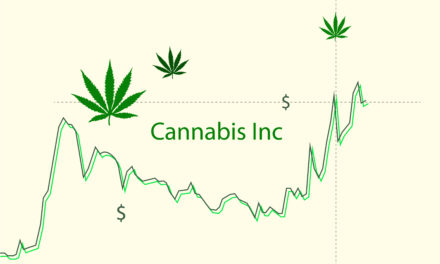A quarter of record corporate earnings is a good sign that a stock could be prime for adding to your portfolio, right?
Wrong, according to Ed Clissold, the chief U.S. equity strategist at Ned Davis Research.
To be clear, Clissold doesn’t think big earnings are a bad sign. Rather, it’s a sign that too many investors draw the wrong conclusion from and fall victim to a major misconception, he said in a recent interview with Business Insider.
Historically strong profit growth doesn’t translate directly into a bright future for a particular company, Clissold said. Instead, he argues, when corporate earnings hit record highs, there’s often nowhere to go but down — and that doesn’t always bode well for a company’s shares. This misunderstanding often sets investors up to fail by sending them down a path of over-optimism that can come back to bite them in the end.
Per Business Insider:
To the extent that traders misinterpret peaking profit growth as a bullish long-term catalyst, they’re setting themselves up for disaster, according to Clissold. And he’s someone well worth listening to, considering he successfully called the December stock meltdown at a time when most on Wall Street were still bullish.
“When earnings growth is very high, it’s already priced in, and it’s not sustainable,” Clissold told Business Insider by phone.
He continued: “In terms of earnings expectations, when the beat rate is high, the assumption is that it’s a good thing. But actually, over the past six years, the market has done better when the beat rate has been lower.”
The fourth quarter of 2018 is a prime example of this. While S&P 500profits grew by 14%, the benchmark index ended up tumbling 14%. That’s because while conditions looked supportive from an earnings perspective, the market was priced for perfection.
Then — when mega-cap tech stocks rerated lower and the Federal Reserve failed to give investors the dovish outlook they so craved — the market collapsed, almost ending the nearly decadelong bull market. It was very much a situation in which euphoria had peaked, and profit growth was both ineffective and misleading.
But Clissold warns of a separate trap investors should beware during recessionary periods. Put simply, when the economy is contracting, disappointing earnings reports are a symptom of that and shouldn’t be viewed as a bullish indicator. It’s a key caveat for any trader combing earnings results for hints of future stock performance.”If you’re going into a recession, then the lower beat rate is a signal of that,” Clissold said. “If you’re not, it’s just a sign that markets are taking a breather, and beat rates should go back up again, and markets will start pricing that in.”




